Using scenario and future planning techniques: I will discuss how DNA testing to prove how Māori you are, to identify your ancestry via DNA testing, or the more recent issue of New Zealand school teachers being offered free DNA testing kits by National Geographic Genographic project to help pupils learn about evolution , has a number of potential problems for Māori.
My Latest DNA post Expert Maori Cultural Commentary to the Law Commission DNA Recommendations
Fact: when you give your DNA to DNA testing services, you also give away the DNA of all of your relatives past, present and future.
Some Māori media have been raising the old racist question of “how Māori are you” which has lead to a popular trend of having DNA tested. Potential problems for Māori include, but are not limited to: profiling, empowering governments to deny Māori treaty claims and tribal membership criteria, DNA being stolen or sold, police/state profiling and health insurance profiling. As technology evolves, the technology to bring tipuna and extinct animals back to life again and Māori designer babies by for non Māori.
DNA testing
In recent times, it is becoming more common to provide a saliva test to send to an overseas company who will then identify your DNA. The sacred whakapapa in our bodies that the western world refer to as DNA is being shipped overseas and stored by international staff who have no awareness of tikanga and probably have never heard of Māori. Somewhere overseas in a laboratory among many other bodily fluids from many other cultures and religions, a stranger is extracting our whakapapa from Māori bodily fluids and storing them in conditions we are not aware of. The DNA from the living will be stored indefinitely with the dead.
Whakapapa
As Māori, we identify to our tribal ancestral identities, to people and land, iwi and hapu via whakapapa. Traditionally large aspects of whakapapa is kept secret within the family to avoid outsiders claiming family connections to claim land, hunting and fishing rights among other family and hapu and iwi benefits. Up until recently, the biggest threat to whakapapa was people sharing their genealogical charts and tipuna on the Internet and with non Māori organisations. Such actions allowed anyone to access the whakapapa and learn it running risks that fraudulent viewers could adapt and use someone else’s genealogy against the family and individuals.
Profiling
Corporations could study DNA based on ethnicity and find racial vulnerabilities for specific food types, colors and various other commercial goods. This in turn could be used to target individuals for advertising, employment prospects and in extreme cases perhaps ability to enroll at various schools.
Risk of hacking
As with anything that is digital and electronic, it risks being hacked. We have seen WikiLeaks and the media reports on international cyber threats, that world governments use cyber warfare and cyber defenses which means that any system is vulnerable to being hacked. This makes the DNA database a target of being hacked for commercial gain, intellectual stimulation of by anti Indigenous hate groups. If we look at history and that of Hitler and consider the potential issues if there was a world wide DNA database.
DNA for Sale
DNA that is being stored overseas is vulnerable to a number of risks including being shared with and sold to third parties without consent of the person the DNA was provided by. In 2012 Ancestory.com purchased private DNA company Sorenson Database consisting of over 100,000 DNA samples and familial pedigrees from donors around the world. Despite Sorenson’s terms and conditions stating that the samples would not be shared without the donor’s consent. There is a detailed plain English explanation of the Terms and Conditions of Ancestory.com called “Setting the Record Straight.
Tribal membership criteria
To be legally recognised as a Native American requires statutes and proof of blood quantum or DNA testing. Native American individuals who want to register as a tribal member must do so with a federally recognised tribe (controlled by the United States federal agency the Bureau of Indian Affairs). Applicants are then required to meet each tribes own criteria which can discriminate based on blood quantum, tribal affiliates or genealogy. Cohen (1942) asserts, the ability of an American Indian tribe to determine its own membership is limited only by the various statutes of Congress defining the membership of certain tribes for purposes of allotment or for other purposes, and by the statutory authority given to the Secretary of the Interior to promulgate a final tribal roll for the purpose of dividing and distributing tribal funds”.
Blood quantum is a colonial definition of Native Americans and was first introduced in Virginia in the early 18th Century as a means of restricting the rights of anyone deemed to be more than 50% Native American, the term only became widespread after the Indian Reorganization Act of 1934 (Sandefur, Rindfuss, Cohen, & National Research Council . Committee on, 1996). The issue with blood quantum is that it could see widespread removal of Native Indian rights and recognition due to miscegenation children.
Individuals enrolled in federally recognized tribes also receive a Certificate of Degree of Indian or Alaska Native Blood (CDIB) authorized by OMB Control Number 1076-0153 (referred to as a CDIB) from the Bureau of Indian Affairs, specifying a certain degree of Indian blood, i.e., a blood quantum. The Bureau of Indian Affairs uses a blood quantum definition—generally one-fourth Native American blood—and/or tribal membership to recognize an individual as Native American (Renewal of agency information collection for certificate of degree of indian or alaska native blood (CDIB). (2014).
In New Zealand Māori identify as being of Māori descent by whakapapa and legally under New Zealand Statutes which generally only requires ancestry or whakapapa as the main criteria to define who is a Māori. This is comparative to the traditional Māori definition of whakapapa (Hudson, Ahuriri-Driscoll, Lea, & Lea, 2007)
The New Zealand statute definition of Māori is broad and inclusive which will allow anyone to register as Māori if they identify as being Māori or a descendant which is not necessarily by DNA.
Examples of statute definitions of Māori include:
- “Te Ture Whenua Māori Act 1993 Māori Land Act 1993: Māori means a person of the Māori race of New Zealand; and includes a descendant of any such person.”
- “Māori Trust Boards Act 1955: Māori means a person belonging to the aboriginal race of New Zealand; and includes any descendant of a Māori”
If the New Zealand statutes were amended to say that a percentage of blood quantum and or DNA is required to identify as being Māori, and if Iwi began the same process, this would quickly discriminate Māori and traditional whakapapa. We would hear arguments that one person claims to be 100% Māori while another person is only 10% so they are not eligible to be Māori. The immediate issue is that all Māori will then be forced to have children with other Māori of a high blood quantum to avoid a Māori couple having a child who is not legally Māori, similar to the case of Native Americans. The more Māori who have their DNA tested, the more possible this will become.
The following sections are worst case future scenarios based on world historical events and current/future trends.
Police/State profiling and discrimination
In the not too distant future profiling of DNA looking for the so called “warrior gene” or perhaps a gene that could predict abusive people could become a reality. In order for the state and police to reduce crimes Maori could be profiled and sent to rehabilitation prior to any crime being committed, but merely on the fact that they have a gene.
In one reported case, American Police subpoenaed Ancerstory.com for DNA samples of a family to assist the police to identify an historic murder case. In New Zealand Police bias is a documented fact and well known fact to many innocent Māori and minority people. Combined with the fact that Māori have the highest statistics for crime this would also logically make Māori high risk to have their own DNA and their family DNA subpoenaed by law enforcement agencies in New Zealand.
Health Insurance profiling
Insurance companies don’t already have all the information they require to make calculated decisions. They want to know about pre-existing conditions to remove the calculated risk they make. The larger mass of DNA available to health insurance companies, makes for better training data to predict the likelihood of a certain condition. Maori could be charged higher premiums not because of an existing condition, but that because a condition in the heritage. Statistically Maori are prone to diseases such as diabetes, gout and heart failure. A simple DNA test or criteria that you must have a DNA in order to obtain health insurance could be bias against Maori.
Ethnic cleansing
Overseas civil wars between majority and minorities are all too common. Dictatorships do in-despicable acts to eliminate minorities. Mass DNA testing could allow military weapon developers to create biological weapons that specifically targeting a race by discharging a weapon in a populated area and not harming one race, but the other.
Historical actions by governments to eliminate Indigenous Peoples is well documented in many countries and is still common for dictatorships to try and eliminate minority cultures via civil war using weapons such biological weapons.
Medical malice
It is feasible to suggest a mass sterilization program could be created that only effected a specific kind of DNA. A study by the U.S. General Accounting Office found that 4 of the 12 Indian Health Service regions sterilized 3,406 American Indian women without their permission between 1973 and 1976 and other research suggests this was a common issue from the 1960’s and 1970’s. There was also wide spread causes in Canada as recently as 2008.
Risks of designer baby’s
This topic of designer baby’s has been speculated for sometime. I suggest that in the future there would be nothing to stop a non Maori couple seeking a designer Maori baby for artificial insemination that was genetically modified to be more like the host parents.
Bringing back to life tipuna
Revitalizing the woolly mammoth via DNA and gene recreation has several projects around the world including at Revive & Restore Genetic rescue for Endangered and extinct species (Havard University) where Professor George Church has inserted woolly mammoth genes into Indian elephant cells using CRISPR technology. If scientists can bring an extinct pre historic animal back to life, then in my opinion recreating a human or even an historic iwi is not out of the question.
Summary
DNA testing can be a novel way to find out who you are. But Māori and others need to consider the future of technology and sciences and the possible impacts on their family now and in the future.

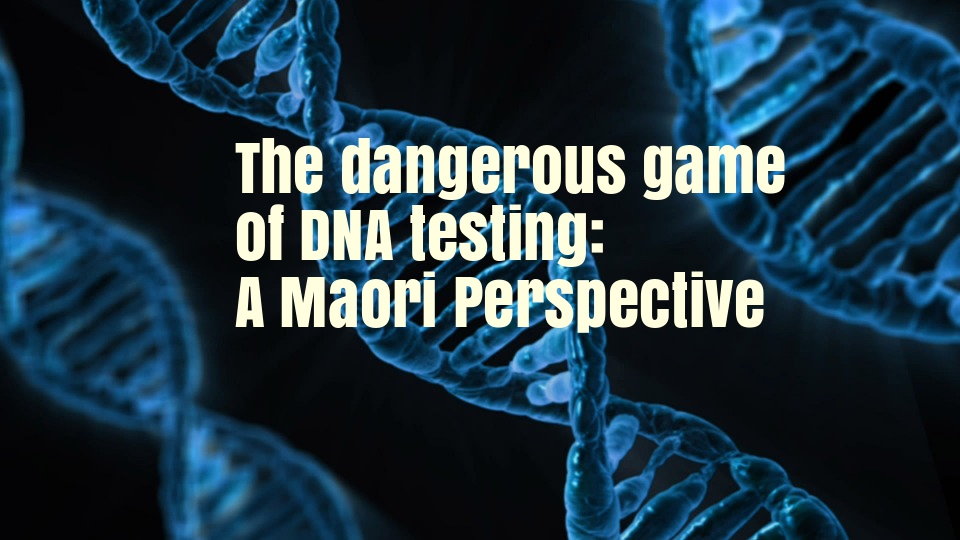
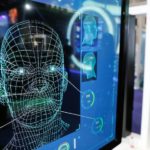
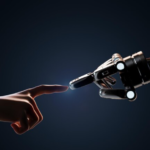
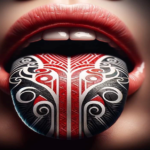
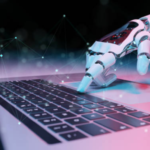
Leave a Reply